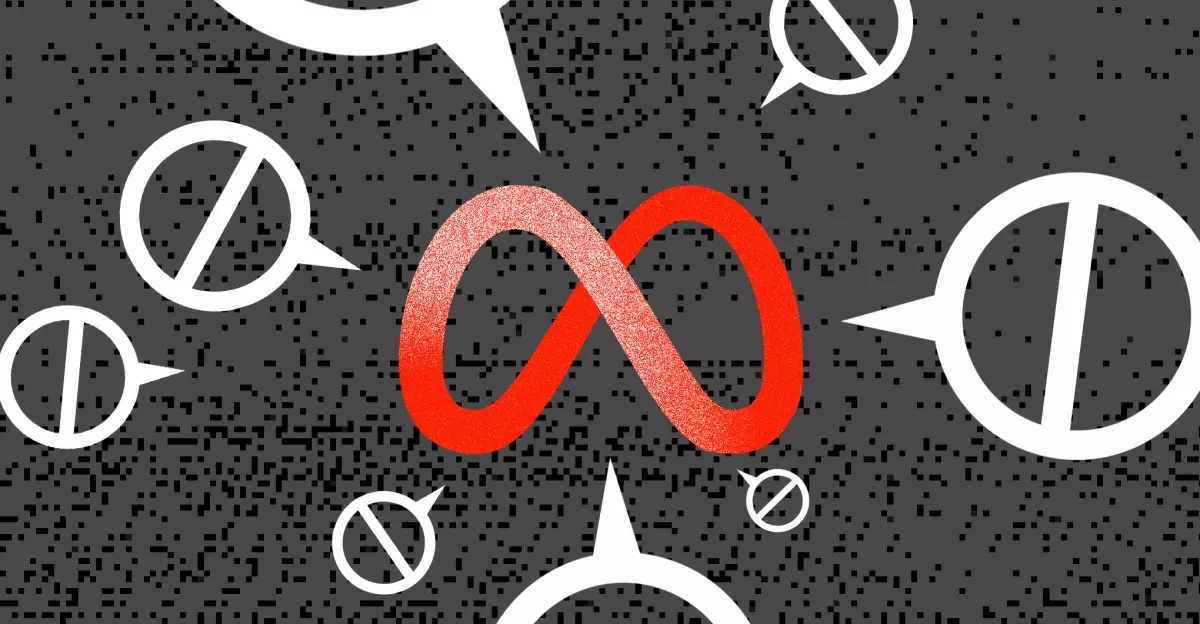The tech industry, particularly within big corporations like Meta, often finds itself at the intersection of innovation and internal strife. Recently, a significant cultural conflict has erupted, leading to heightened tension among employees and management. With the CEO’s controversial remarks and the threat of layoffs looming, the atmosphere at Meta reflects a volatile mix of ambition, insecurity, and ideological dissonance.
Meta, previously known as Facebook, is grappling with an identity crisis characterized by its expansive growth and equally profound internal challenges. At a recent employee Q&A, Andrew Bosworth, the Chief Technology Officer, raised alarms about the “tremendous number of leaks” compromising the company’s inner workings. His comments signified a broader frustration with the culture of transparency—often viewed as a double-edged sword—within a company that thrives on innovation. While employees may feel empowered to speak out, Bosworth’s assertion that leaking information produced more resistance than accountability highlights the inherent contradictions within Meta’s cultural framework.
The underlying question remains: what will the company look like once the current turbulence subsides? Bosworth candidly addressed the need to reassess how the company responds to these leaks, suggesting that they foster a destructive environment. This revelation signifies a markedly authoritarian approach to leadership which may alienate employees, especially in an era where transparency and ethical conduct are paramount in the tech sphere.
What complicates matters further is the disconnect between upper management and the workforce. During Bosworth’s Q&A, an employee’s query regarding Mark Zuckerberg’s comments about “masculine energy” stirred controversy. Bosworth’s vehement defense of Zuckerberg’s statements indicates a larger issue: the struggle for effective communication between management and staff. His exasperation underscores the sentiment that employees are not fully informed about leadership viewpoints, and perhaps even worse, that they are misinterpreting intentions.
This interchange reveals just how sensitive the workplace climate is—miscommunication can lead to discontent, rising tensions, and a feeling of disenfranchisement among workers. Moreover, it raises profound concerns about how ideas about gender and energy influence the corporate atmosphere, hinting that there are deeper-rooted ideological conflicts at play.
Adding to this already strained environment is the unsettling prospect of layoffs. Reports suggest that Meta is poised to implement further cuts aimed at “low performers,” which naturally generates anxiety among employees. Feeling undervalued in such a high-pressure environment can lead to reduced motivation and engagement among workers. The psychological toll of layoffs—particularly in an organization that has thrived on rapid growth and innovation—can severely undermine morale and productivity.
The impending workforce reductions signal a shifting corporate strategy that might contradict the company’s previous commitment to inclusivity and support for its employees. This shift is deeply concerning; it shows that despite advancements in technology and ideology, the human element continues to struggle in large corporations.
The cultural turmoil within Meta is not an isolated phenomenon. Other tech sectors reflect a similar pattern of upheaval, with companies like Google also facing their own internal challenges. The resignation of key figures within significant divisions indicates instability that could hinder progress. Moreover, there seems to be a growing reckoning with diversity, equity, and inclusion (DEI) initiatives across the industry.
For example, Meta’s leadership shifts and layoffs suggest a reevaluation of priorities that may simultaneously reflect and impact its public image. As Meta contorts under the weight of its controversies, the future of its workforce and corporate ethos hangs in the balance. These developments could provoke broader scrutiny of tech leaders’ responsibilities toward fostering a sustainable and inclusive workplace.
As Meta navigates its precarious landscape marked by cultural clashes and workforce anxiety, the way it chooses to respond will be crucial. The ongoing struggle for power and clarity within the organization could either strengthen its trajectory towards a more cohesive workplace or continue to breed dissent and fragmentation.
Ultimately, whether Meta finds a path to resilience through open dialogue and employee empowerment, or succumbs to resistance and further conflict, will likely shape not only its corporate identity but also set a precedent for other tech giants facing similar dilemmas. As this cultural saga unfolds, it stands as a case study on the intricate interplay between leadership, employee wellbeing, and the broader implications of corporate culture in the high-stakes world of technology.

